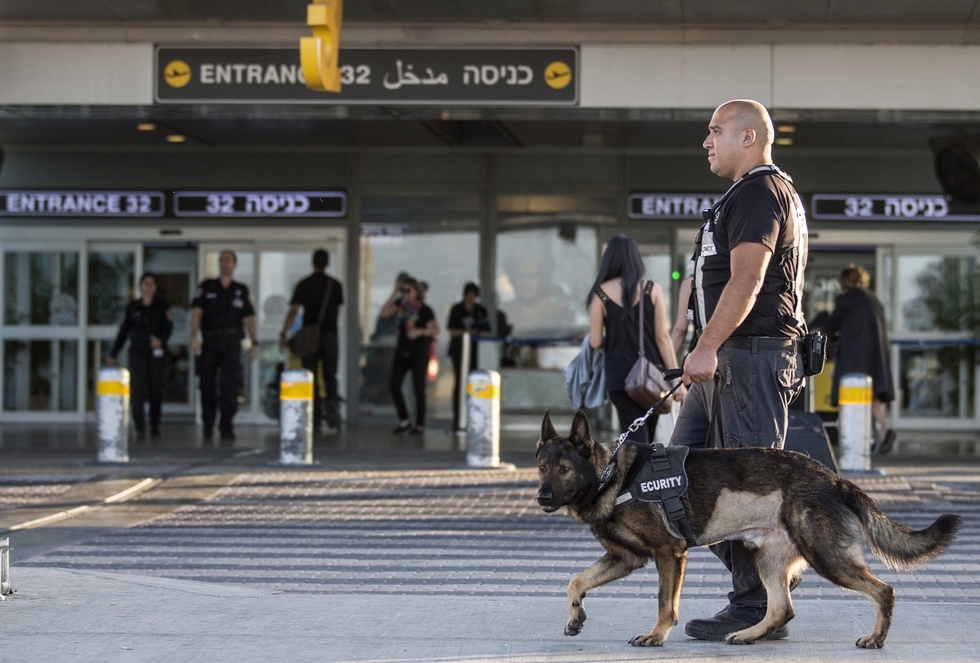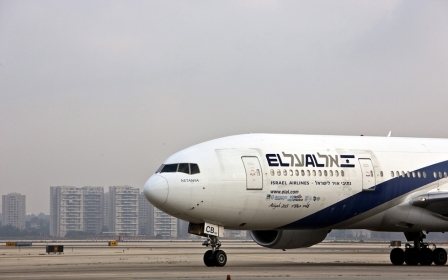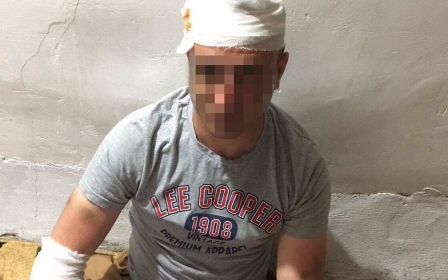Israel’s racist airport security routinely humiliates Arab women. I know

Earlier this month, Haaretz reported that three female Palestinian citizens of Israel were suing El Al and Arkia airlines for the humiliating treatment they received before boarding a flight in Belgrade back to Tel Aviv.
One of the plaintiffs told Haaretz that they were taken aside from the group that they were with and subject to intrusive body strip searches because “we are Arab and also because we are women”.
The racist discrimination faced by Palestinian citizens of Israel has been well-documented over the years, but the gendered nature of this racism is sometimes overlooked.
Gender proves to be an effective tool in which to violate and humiliate people and, more often than not in conflict and war, women are the ones that fall victim.
What happened to the women suing the airlines reminds me of a similar incident that happened to me three years ago.
The mistaken flight
I had booked a flight to Cyprus from Ben-Gurion airport through an airline unknown to me. Unfortunately at the time, I failed to notice the small print that stated the flight was “operated by Al El”.
In addition to boycotting the airline on principle, I would have also avoided flying with it because it is well known that it allows Israeli security services to operate out of foreign airports under the guise of the airline’s security. Indeed, Al Jazeera obtained leaked cables in 2015 which revealed that “Israel uses its flag-carrier, El Al Airlines, as cover for its intelligence agencies”.
It is well known that El Al allows Israeli security services to operate out of foreign airports under the guise of the airline’s security
But I only realised my mistake on the outward journey. On the return trip, I arrived at the airport desk in Larnaca and handed over my passport only to be immediately taken aside by a Cypriot security guard who explained that I would have to undergo a “security check” by the airline.
The man led me down a corridor into a small room which to my surprise, was covered in “Welcome to Israel” posters that depicted popular tourist spots such as the Dead Sea, Haifa and Tel Aviv’s beaches. This was a crude and clear signal that I was under Israeli jurisdiction now.
I was told to sit down and introduced to two Israeli security agents who would be overseeing my personalised security check. They went through every item in my luggage, questioning where everything was from, and suspiciously took my electronic equipment apart as I sat helplessly watching. They then proceeded to do a “body check” where I was stripped down to my underwear.
Once they were done, they assigned a female Israeli security agent to escort me through the airport in a similar fashion to the treatment of the women in Belgrade. This agent even followed me to the bathroom and stood outside the cubicle.
Six with a star
The unusual nature of this particular Israeli security harassment was that it happened on foreign soil, because, when I fly from Ben-Gurion, which I frequently do, this happens every single time. As a Palestinian citizen of Israel, I am lucky enough that my occupiers grant me this passage and freedom of movement denied to so many of my Palestinian brothers and sisters.
The airport operates a security system which is so obvious in its racism and discrimination that it has become a favourite anecdote of foreigners
But the process of leaving the country has never been easy or straightforward. The airport operates a security system, which is so obvious in its racism and discrimination that it has become a favourite anecdote of foreigners when leaving the country who often brag about the security rating they receive - as if it proves their ultimate solidarity with Palestinians.
This security system operates in a very unsophisticated manner. After asking a series of questions on arrival, the security personnel will give you a barcode beginning with a number from one to six. One is the lowest security rating and is afforded to Israeli Jews, and six is the highest afforded usually to Palestinians, other people of colour, and NGO or UN workers.
A four and above means that you will be subjected to a lengthy security check. For over a decade now I have been receiving sixes, and three times I have received a six with a star, presumably indicating some form of extra security “risk”.
The security check that follows is a lengthy process of checking every item in your hand luggage, swabbing everything down and doing a body search. More often than not, I am assigned two members of the security team who usually like to question me at length about my identity and on information about my family.
Designed to humiliate
On many occasions, this routine takes on a gendered nature designed to humiliate. One such time, they found a tampon that had been at the bottom of my bag, held it up and, in an accusatory fashion, asked loudly, "What is this?"
All the other security guards and passengers turned to look. "It’s a tampon," I explained.
"A what? What is it for?" one of the guards asked.
"Are you being serious? It’s used for menstruation purposes,” I said.
After a long pause and serious eyebrow raising a guard replied, "Ok, ok I understand."
After some sniggering about the tampon, they then took me for a full-body x-ray. After the x-ray, the same security guard called over another member of staff.
'I need to ask you a personal question. Are you wearing a push up bra?'
- question asked by Israeli airport security
"Hello, I am the head of security,” the new staff member told me. “I need to ask you a personal question. Are you wearing a push up bra?"
Another time, after a full body x-ray, they decided that my vagina was a security threat and assigned not one, but two female security guards to check that region of my anatomy.
This gendered form of humiliation also occurs frequently at road checkpoints. On many occasions when I have been stopped by the Israeli army, I am asked about by marital status and sometimes they call over other soldiers to leer at me.
These incidents may seem petty and insignificant, but when they become a frequent part of your life and your routine, it is clear that they are designed to wear you down into submission. Often it has been suggested by the airport security, that if I don’t like the treatment, then I should travel through Jordan.
Unfortunately, it is unlikely that the women pursuing the lawsuit against the airlines will be successful. Racial discrimination and violence is embedded in the very fabric of the state of Israel, and legal challenges from within are unlikely to change those power structures. But the women's actions are brave and set an example for others to challenge the particularly humiliating gendered aspects of a settler colonial regime.
- Yara Hawari is a British Palestinian scholar-activist, whose writing continues to be informed by her commitment to decolonisation. Originally from the Galilee, she has spent her life between Palestine and the UK. She is currently a final year PhD Candidate at the European Centre for Palestine Studies at the University of Exeter. She is also a policy member of the Al-Shabaka think tank and writes for various media outlets, including the Electronic Intifada and the Independent.
The views expressed in this article belong to the author and do not necessarily reflect the editorial policy of Middle East Eye.
Photo: A security officer leads a dog as they patrol the entrance of Ben Gurion International airport, near the Mediterranean Israeli coastal city of Tel Aviv on 21 August 2014 (AFP)
New MEE newsletter: Jerusalem Dispatch
Sign up to get the latest insights and analysis on Israel-Palestine, alongside Turkey Unpacked and other MEE newsletters
Middle East Eye delivers independent and unrivalled coverage and analysis of the Middle East, North Africa and beyond. To learn more about republishing this content and the associated fees, please fill out this form. More about MEE can be found here.





